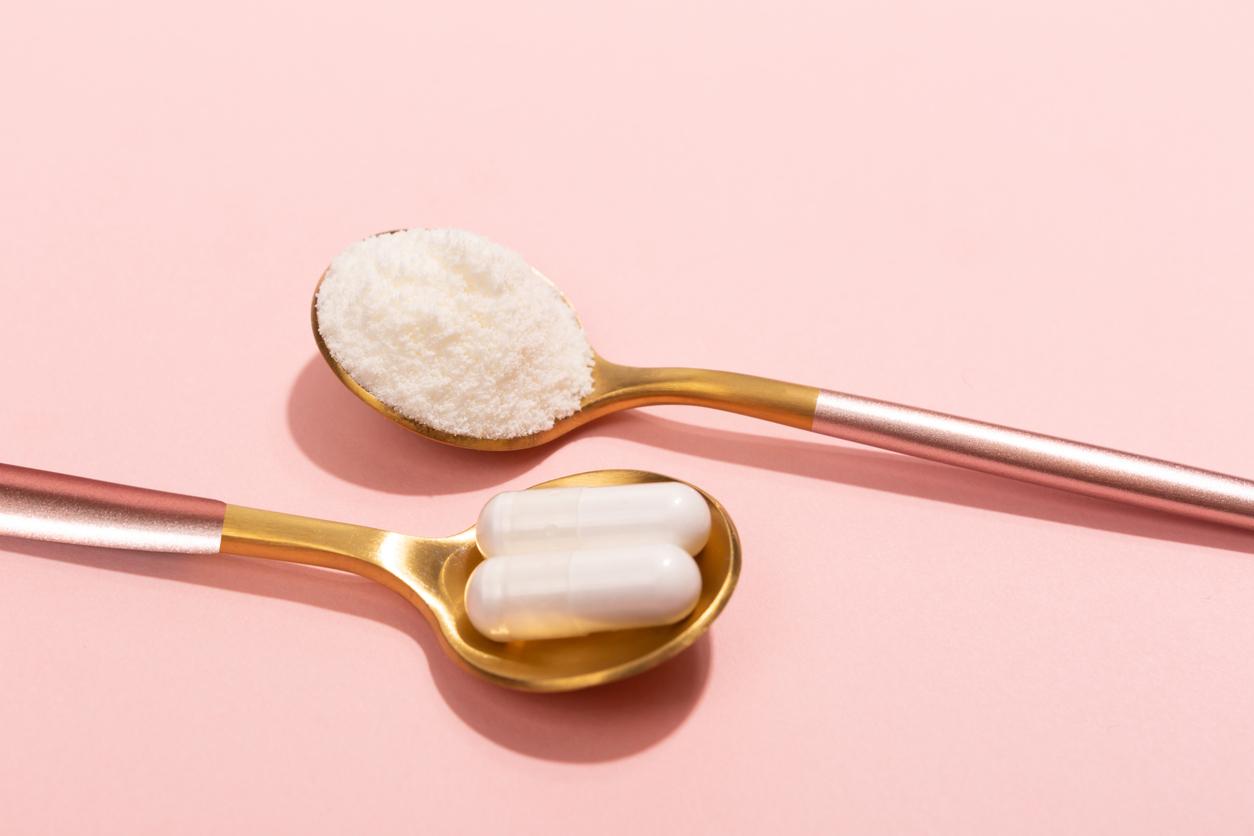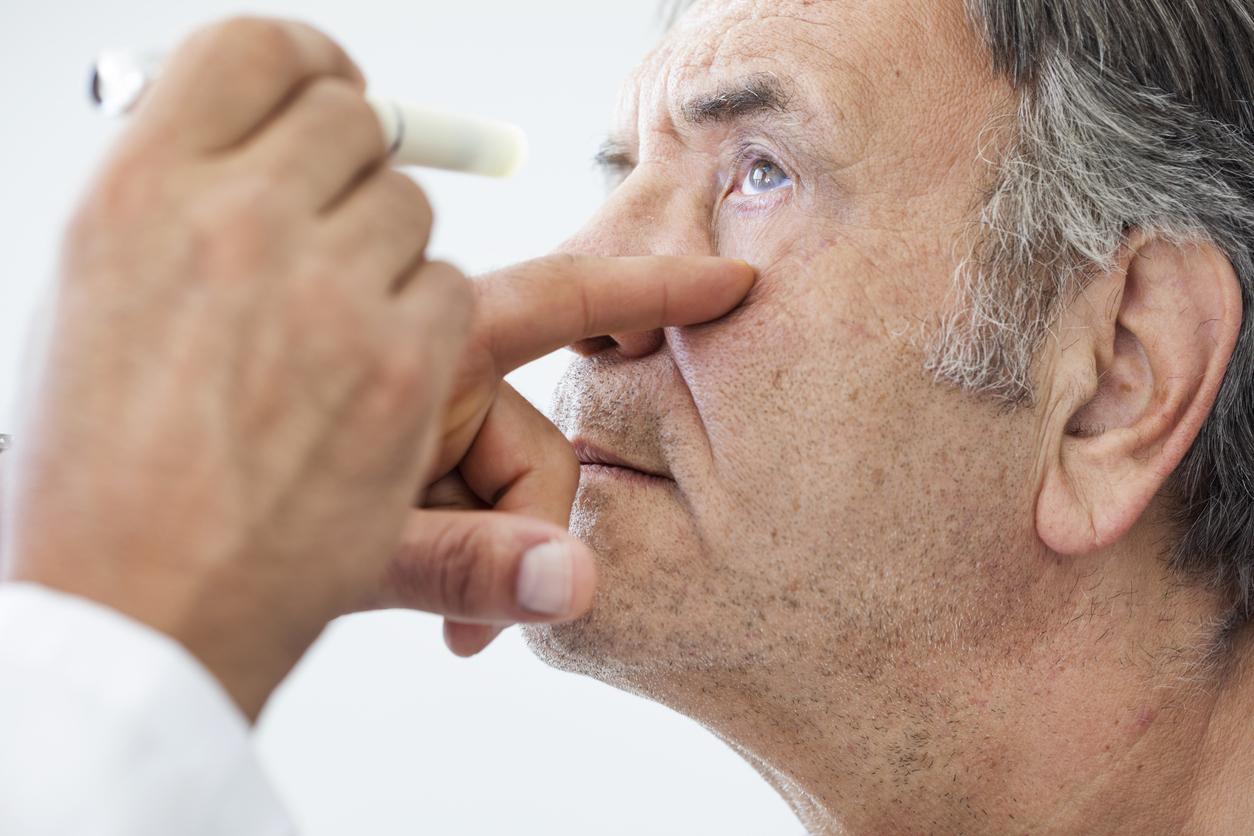Collagen supplements are now sold as anti-aging products, which fill wrinkles as well as soothe joints. But scientific evidence is lacking, according to experts.

- Collagen, a key protein for the skin and joints, decreases with age, leading many to resort to food supplements in the form of capsules or powders, promoted on social networks as “anti-aging miracles”.
- Experts, including some dermatologists, question their effectiveness: Once ingested, collagen breaks down and does not specifically target the skin or joints.
- Instead, they recommend naturally boosting collagen production through a diet rich in protein, vitamin C, and minerals to maintain health and appearance.
Collagen, this essential protein which provides the structure of our skin, our joints and our digestive system, naturally decreases with age, leading to wrinkles, joint stiffness and other discomforts. Concerned about this loss, many people are now turning to collagen supplements, very popular on social networks and touted as miracle solutions for maintaining a young and healthy appearance. But do these products really keep their promises?
A thriving but controversial collagen market
Capsules, powders, creams enriched with collagen, and even collagen coffees: the supplement market is exploding, driven by marketing and influencers who are multiplying the testimonials of supposedly spectacular results: anti-wrinkle, joint comfort, reduction of pain, strengthening bone density… Public figures like Tibo InShapefamous on Instagram, assert without trembling that collagen is an asset for strengthening the body without sugar or fat, thus attracting a wide audience. However, despite the craze, experts question the real effectiveness of these supplements.
“For me, it’s all nonsense”says Isabelle Rousseaux, from the National Union of Dermatologists, at the microphone of France Info. She explains that collagen is too large a molecule to specifically target the skin or joints. In fact, once ingested by the body, collagen breaks down into amino acids in the digestive system. These nutrients then disperse throughout the body, without targeted effect on the skin or joints.
“Although some studies have suggested that collagen supplementation can improve certain skin properties such as elasticity and hydration, messages promoted in the media and on social media about the dermatological effects of collagen often go far too far. far”, abounds the National Institute of Health and Medical Research (Inserm).
A healthy lifestyle more effective than collagen supplements
To date, no serious study proves that collagen supplements reduce wrinkles or provide lasting relief from joint pain. According to the consumer association UFC-Que Choisirthe rare clinical trials that we can find, on osteoarthritis pain for example, are poorly conducted, on too small a number of patients, without comparing the results of collagen to those of a placebo (a methodological rule of thumb). base). “There is no proof that it works. And, above all, there is no reason why it should work”summarizes Professor Francis Berenbaum, honorary president of the French Society of Rheumatology, interviewed by the association.
Faced with these supplements which in fact have nothing to do with an elixir of youth, expert specialists recommend a more natural approach, via a healthy lifestyle and a balanced diet. By favoring a diet rich in protein, vitamin C and minerals such as zinc and copper, it is possible to support collagen production. Citrus fruits, green vegetables, whole grains and nuts provide the nutrients necessary to maintain the vitality of the skin and joints without using expensive and seemingly ineffective products.

















